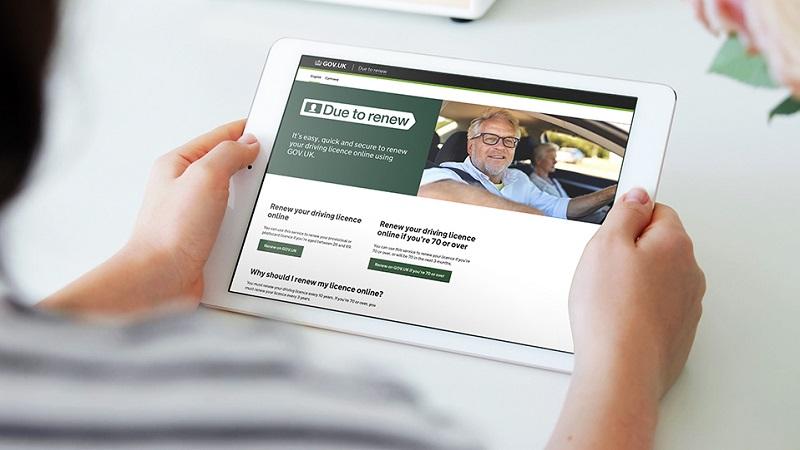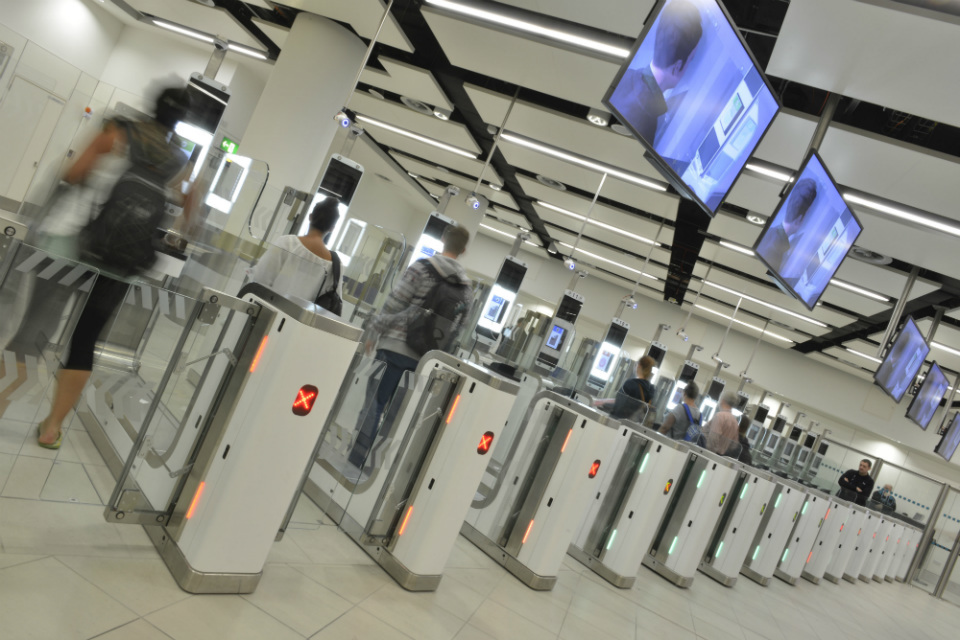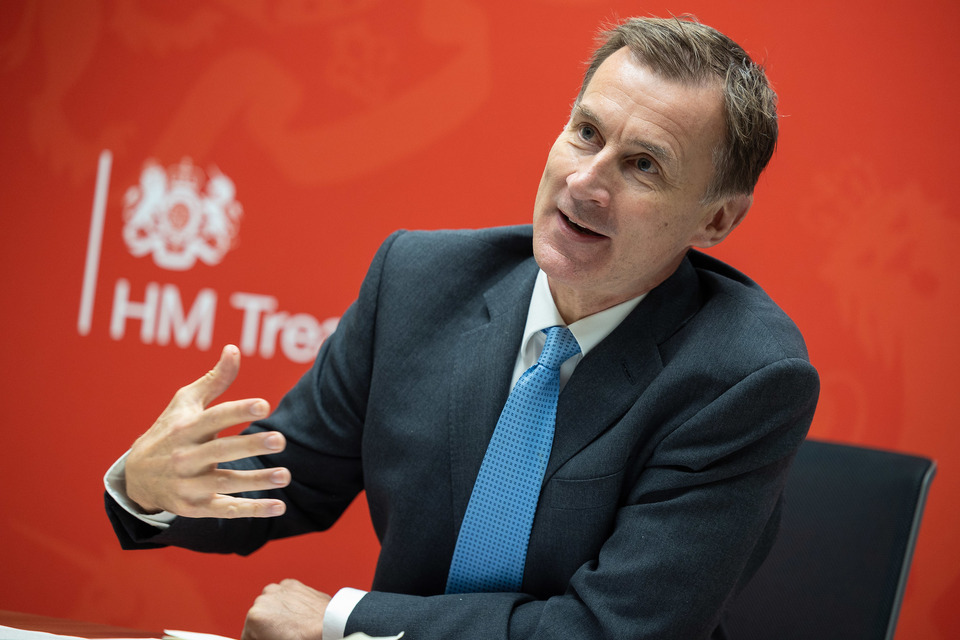Lesley Cowley arrived at the government agency after leading the UK’s internet domain registry, and has used her tech expertise to assist with digitisation – and wheel clamping. PublicTechnology finds out more.
Credit for all pictures: DVLA
“A chair is not just for board meetings.”
This is the key piece of advice Lesley Cowley offers to whoever is chosen to succeed her as chair of the Driver and Vehicle Licensing Agency, a role she is departing after almost nine years.
The position is non-executive and part-time: the job advert for a new chair estimates a commitment of seven days per month.
But Cowley warns anyone tempted to view the opportunity as a potential hobby or casual diversion: “Do not underestimate the amount of time you need to put in.”
The time the outgoing chair has dedicated over the past decade has included working not just with the DVLA’s executive and boardroom team, but also with a range of external stakeholders, including motoring industry groups and other major data registries.
Cowley has also worked closely with the breadth of the agency’s workforce – including a day spent “at the sharp end” of front-line service delivery, accompanying DVLA enforcement teams as they clamped vehicles.
Throughout all which, her role has been to “offer challenge and support”, she tells PublicTechnology.
With a background as chief executive of the UK’s internet domain name registry, Nominet, her input has often focused on the DVLA’s use of technology and digital services.
60,000
Average number of items of mail that arrive at the DVLA each day
60%
Estimated proportion of these that could be dealt with entirely online
22 years
Length of time that the DVLA relied on outsourced IT, before bringing services in house in 2015
93.5 million
Overall number of customer transactions processed by the DVLA in 2021/22
83%
Proportion of these completed online, equating to 78 million transactions
Cowley singles out the process of moving away from an entirely outsourced IT model and bringing services in house in 2015 as the most significant development with which she has been involved.
The move brought an end to more than 20 years of relying on outsourced IT, the last 13 of which were accounted for by the £1.5bn PACT contract. During this time IBM was the principal contractor – but the agency IT estate’s required support from more than 300 separate suppliers.
Transferring all of this to internal teams “allowed us to be much more agile – and also saved a shedload of money”, according to Cowley. The insourcing exercise has provided a platform for a major digital transformation drive in the years since, she adds.
Of the 93.5 million customer transactions processed by the DVLA in the 2021/22 year, about 83% – 78 million – were completed digitally. The majority of the millions of licences and vehicle registrations issued by agency were also provided following citizens’ use of digital services and, of the 46.7 million people that taxed their vehicle during the year, 99% did so online.
“The public sector is much more mature in terms of digital and IT than people realise. The DVLA is digital by design now,” Cowley says. “We have a fantastic team that are in house, including a research lab that can allow us to design services that are quick, easy to use and more efficient.”
The chair adds that digitisation is especially impactful for an organisaiton of the scale of the DVLA – which holds records of about 50 million drivers and 40 million vehicles.
Paper trail
Cowley has direct insight of the complexity of manually processing such vast volumes of information; during her time at Nominet – which began in 1999, when there were just 26,000 internet domains registered in the UK – Cowley paid visits to various national registries to observe how they operated. This included trips to the DVLA, HM Passport Office, and Companies House – where she also later served as chair, from 2017 to 2023.
“I was amazed by the scale of the paper processing in all of those organisations,” she says. “I went back to Nominet and said: ‘whatever we do, we are not going to be able to do this by paper’ – that was the main message.”

Cowley (pictured below right) was pleased to find that, by the time she joined the DVLA’s boardroom set-up in 2014, “it had changed quite a lot since my last visit”.
And such change continues. In 2021, the agency published a new three-year strategic plan designed to “consolidate our position as a dynamic, digital organisation”. The centrepiece of these ongoing digital initiatives is the creation of a new customer account, currently in private beta phase. The service is ultimately intended to give users a single unified means of accessing and managing all their information.
As well as improving customer experience, the new platform will also enable the DVLA to begin decommissioning some incumbent legacy systems, according to the chair.
For all its progress in recent years, the agency has also encountered some technological difficulties – most notably during the coronavirus crisis.
Appearing before parliament’s Public Accounts Committee six months ago, chief executive Julie Lennard acknowledged that, at the start of the pandemic, “it wasn’t part of DVLA’s DNA to be able to have remote access to [the] level of data” possessed by the organisation which, she said, represents “the closest thing that we have to an ID database in this country”.
Social contact restrictions imposed to combat the spread of Covid placed major limitations on the number of employees able to attend DVLA offices and deal with the 60,000 items of mail the agency receives on average each day. The resulting backlog of driving licence applications – which peaked at 1.1 million in September 2021 – was further compounded by a series of strikes in which workers walked out over safety concerns.
The backlog has now been cleared. And, alongside the implementation of new technology to better support remote working – including Microsoft Teams, which was not used by the DVLA before 2020 – the agency has opened a new office in Birmingham, in addition to its long-standing HQ in Swansea.
“There is now geographic diversity,” Cowley says. “Overall, we have learned to be more resilient going forward – if we had another [crisis], we could pivot a lot quicker.”
Post production
Given that 60% of the 60,000 letters and packages arriving each day relate to issues that could be dealt with online, the DVLA is also expanding its efforts to encourage people to use its digital services.
This includes offering assisted digital support via the Post Office, and working with the part-government-owned Behavioural Insights Team – popularly known as the nudge unit – to use behavioural science techniques to point people towards its online offering.
This will help enable “a huge pipeline of work” to deliver ongoing transformation and become a unified national “centre for motoring” – with a comprehensive suite of digital services built around users’ needs and priorities, Cowley says.
Overseeing all which will be a new chair, a role for which applications are now open and, according to the job advert, offers candidates “an exciting time to join the [DVLA], as we continue to modernise and transform, ensuring we continue to provide excellent digital services to our nation”.
Cowley – who tells PublicTechnology she will soon be looking for another “challenging” non-exec post, most likely in the public sector – has nothing but encouragement for anyone interested in putting their name forward.
“I would say it is a real opportunity to make a difference to millions of people and do a great job,” she says. “It is not for the faint-hearted: as chair, you are there for the good times and the bad. But there is a great team and a lot of very passionate people at the DVLA.”




